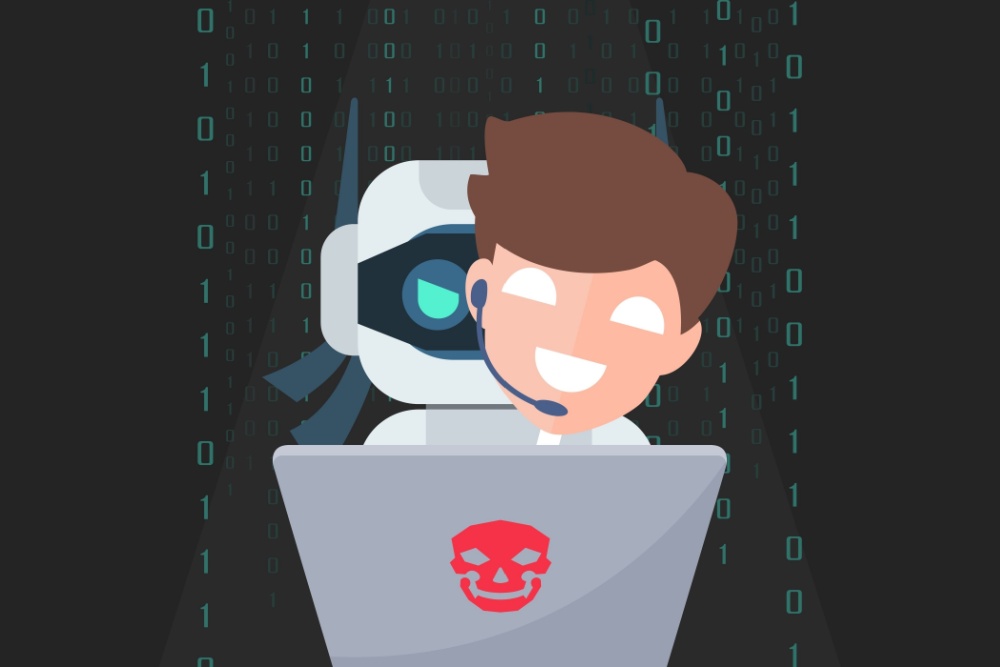AI is expected to play a dominant role in cybersecurity in 2024. It is emerging as a powerful ally in the fight against cyber threats. Its ability to analyze massive amounts of data to identify patterns, and to immediately adapt and react to what it finds, positions AI as the ultimate watchdog of cyberspace. At the same time, concerns are also expected to heighten as we worry about both ethical and criminal misuse of AI.
AI Improvements to Cybersecurity
In 2024, AI’s role in cybersecurity will certainly expand, providing proactive defense mechanisms against evolving threats. Some of the trends expected to continue and expand this year include:
Predictive analytics
AI can anticipate future cyber threats by analyzing historical data and current trends. This allows for preventive measures to be taken in advance.
Behavioral analytics
With the integration of behavioral analytics and AI, threat detection and response can be improved. AI can use these analytics to establish normal user behavior baselines, making deviations from that norm instantly recognizable as a potential security breach.
Generative AI
Generative AI, like ChatGPT and Bing, is expected to impact cybersecurity business strategies and is actively being researched and developed. According to a report by the Security Industry Association (SIA), 93% said they expected to see generative AI make an impact upon their business strategies within the next 5 years. Additionally, over 89% of security industry leaders said that they had AI projects active in their research and development pipelines.
Automated Incident Response
AI-driven automation is revolutionizing cybersecurity incident response. The speed and efficiency with which AI systems can identify and respond to security incidents greatly exceeds human capabilities. This not only minimizes response times but also allows cybersecurity professionals to focus on more strategic aspects of threat mitigation.
Adaptive Authentication and Access Controls
In 2024, the security industry anticipates the widespread adoption of adaptive authentication, where AI analyzes user behavior to dynamically adjust authentication requirements. This automated behavior enhances security without compromising user experience.
Collaborative Threat Intelligence Sharing
This year, collaborative threat intelligence sharing among organizations is expected to become more prevalent. AI will also facilitate the analysis and dissemination of threat intelligence, encouraging a collective approach against cyber threats.
AI Cybersecurity Challenges in 2024
There are three major concerns associated with AI and its effects on our security in the coming year:
Trust and Transparency
The ethical deployment of AI must include clear explanations as to how algorithms make decisions and provide their results. This is necessary to ensure that cybersecurity professionals and end-users can understand and trust the recommendations provided by AI systems. A collaborative effort between cybersecurity professionals, policymakers, AI technologists and ethicists is essential.
Intentional Misinformation
Behavioral and predictive analytics used in conjunction with AI technologies can be abused to disseminate misinformation. Simultaneously, as AI continues to improve, it can provide more convincing language, representation, and deepfakes to sway opinions. Fears of its influence in the political arena loom large in this presidential election year in the United States.
Criminal Misuse
Phishing, ransomware attacks and other online scams are predicted to soar this year with AI-based social engineering. This trend underscores the need to perform AI risk assessments and consider outsourcing expertise to an AI pro who can run AI-resistant security protocols.
New Regulations Expected
Because of the instant popularity of AI, as well as its easy accessibility and pervasiveness, cybersecurity experts believe it is now extremely important that regulatory and legal frameworks step in and put guidelines in place. Such regulations have become a trendy topic already, with several countries planning to create their own guidebooks. Factors like ethics, transparency (as to exactly how specific algorithms work), privacy and standardization should find their places within the new regulatory frameworks.





0 Comments